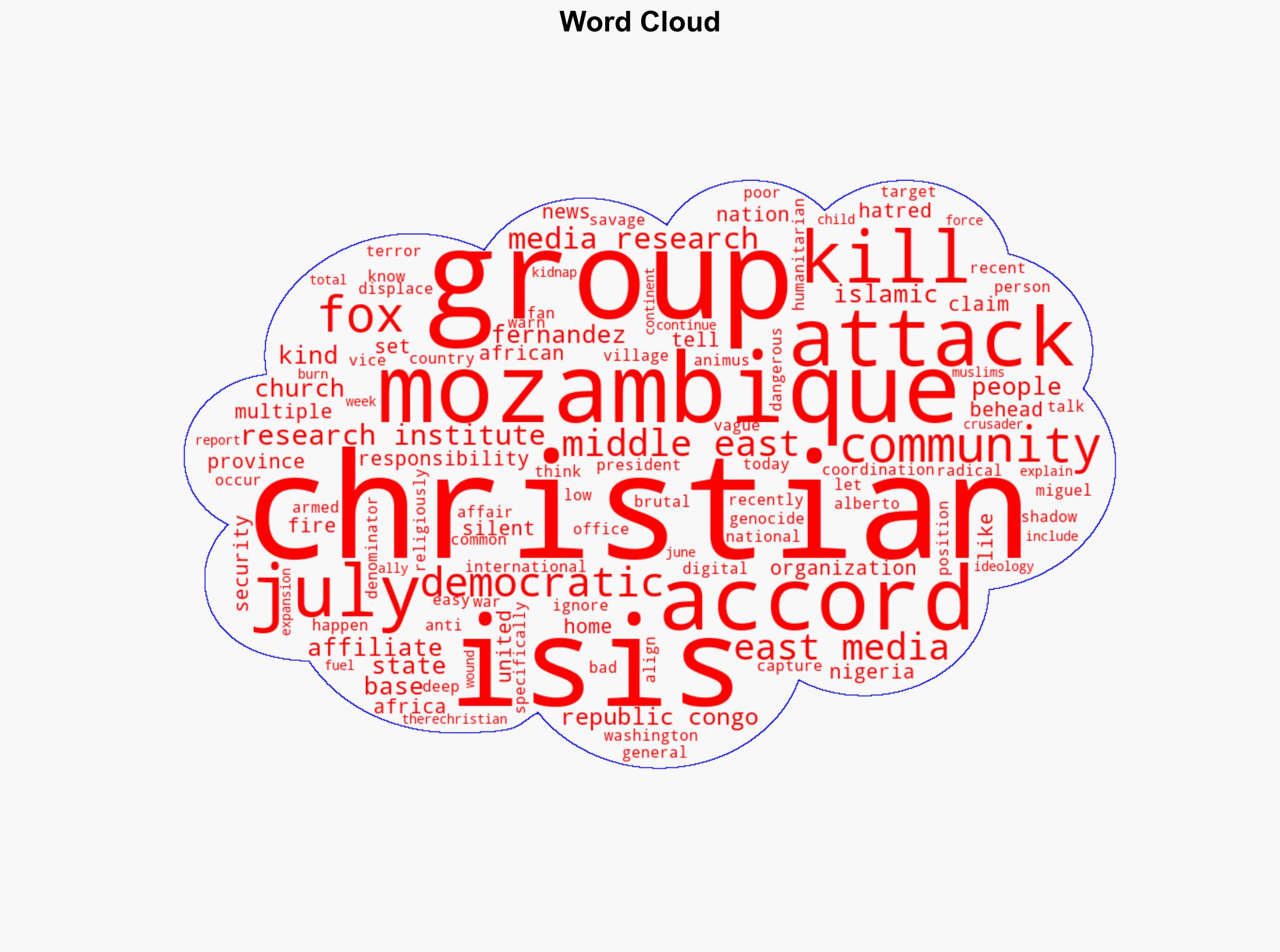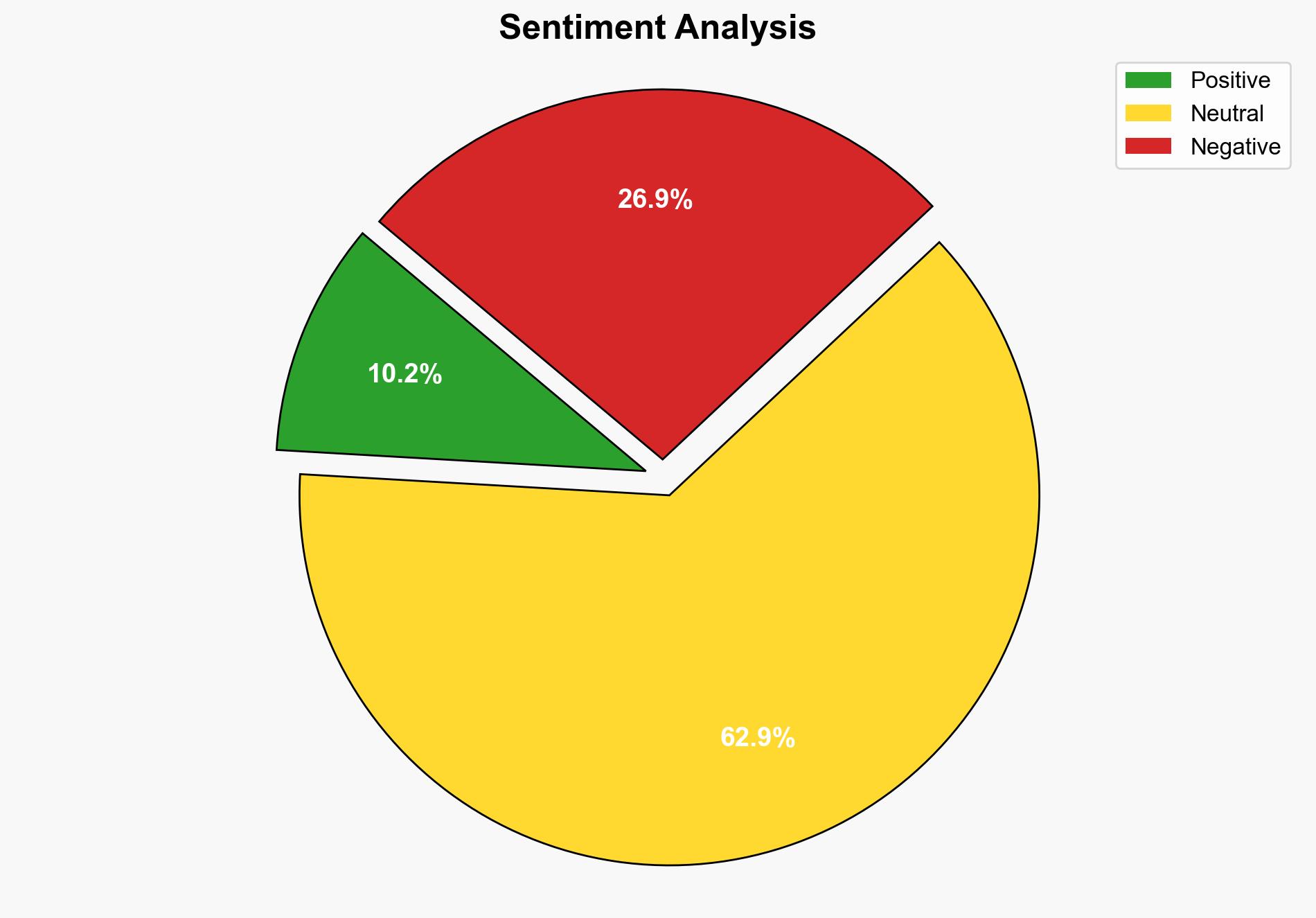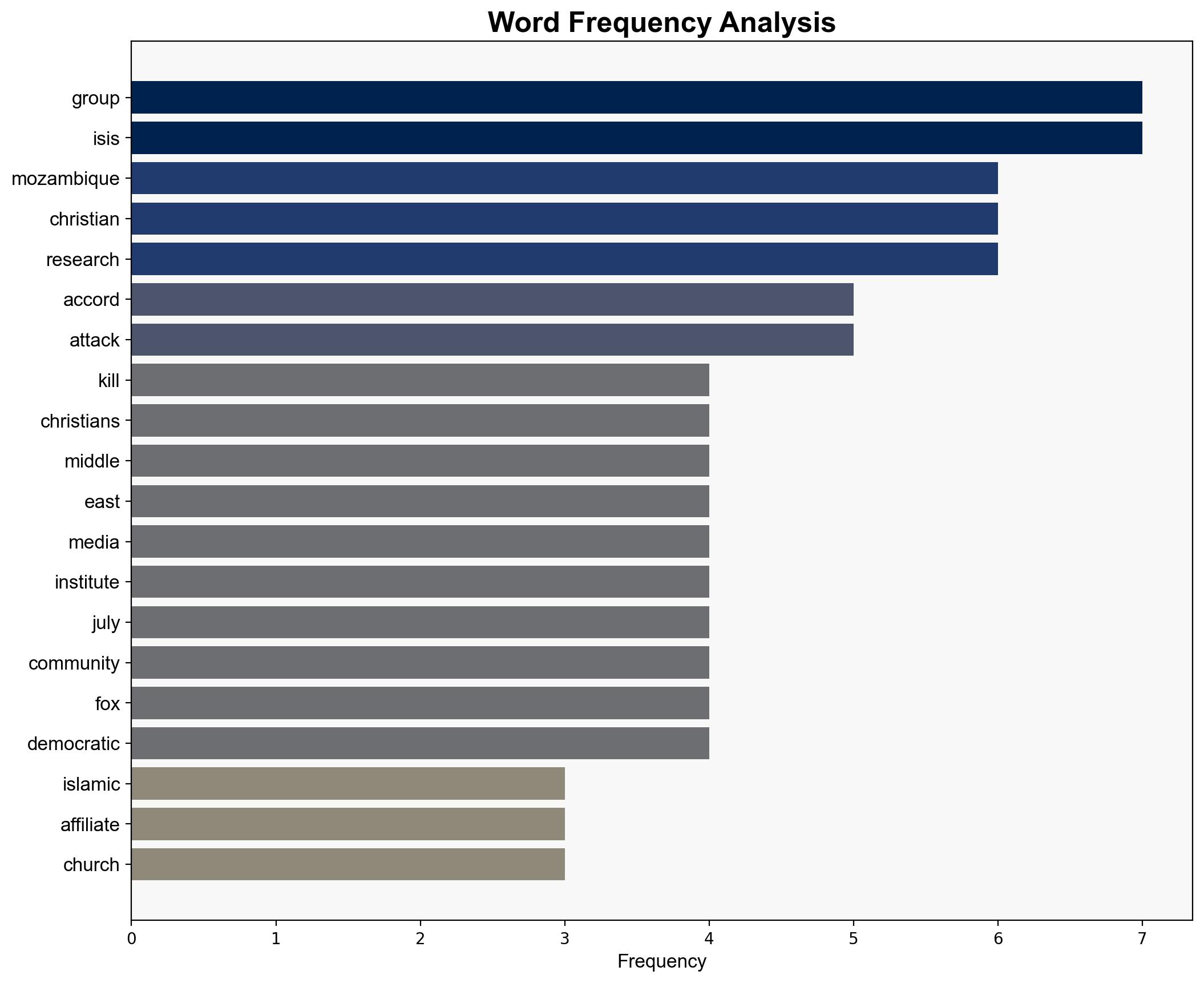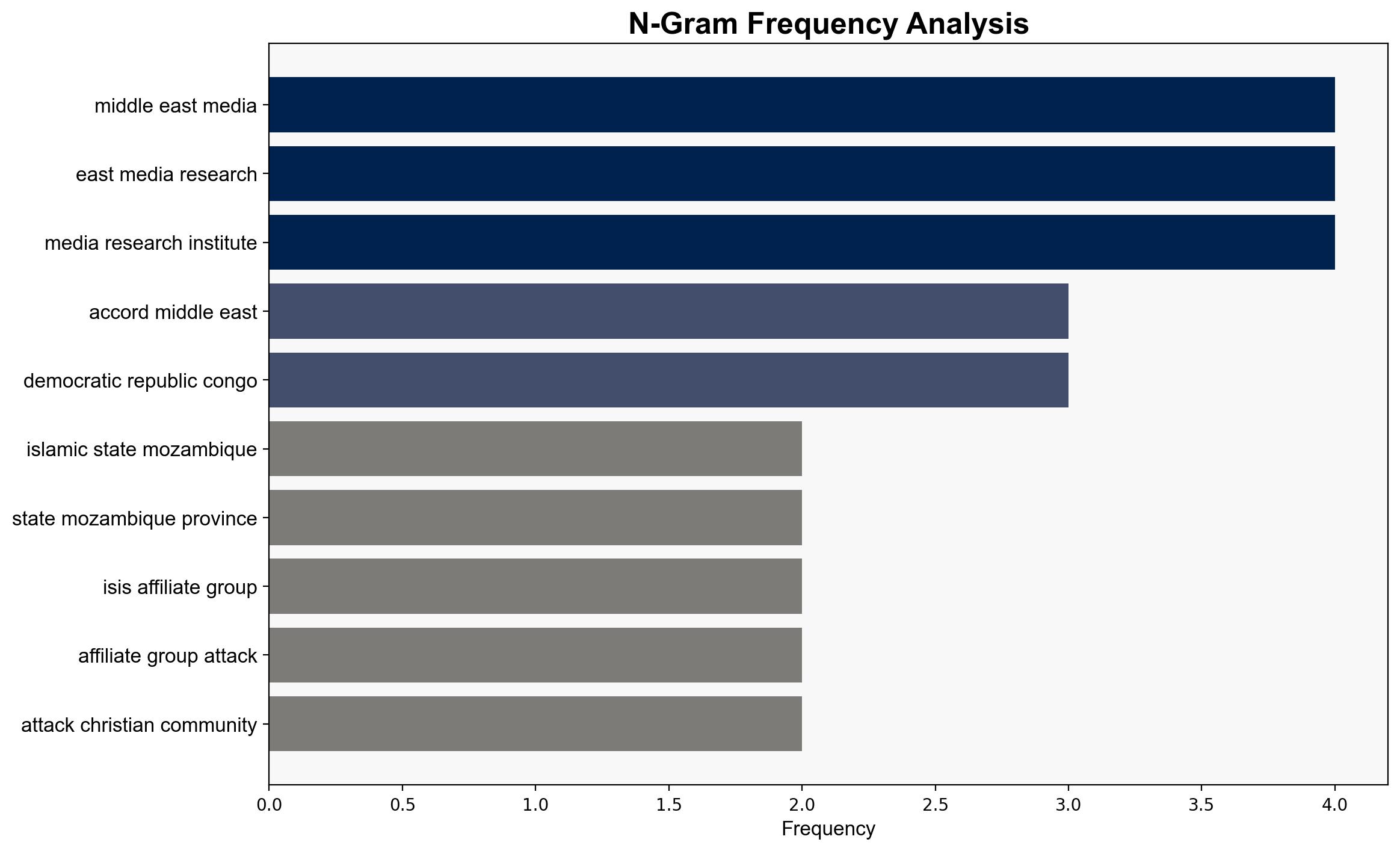ISIS Groups Behead Christians Torch Churches and Homes in Africa – Daily Signal
Published on: 2025-08-07
Intelligence Report: ISIS Groups Behead Christians Torch Churches and Homes in Africa – Daily Signal
1. BLUF (Bottom Line Up Front)
The most supported hypothesis is that ISIS-affiliated groups are strategically targeting Christian communities in Africa to expand their influence and instill fear, leveraging religious animosity as a tool for recruitment and territorial control. Confidence Level: High. Recommended action includes enhancing intelligence-sharing and counter-terrorism cooperation with African nations to disrupt ISIS networks and protect vulnerable communities.
2. Competing Hypotheses
1. **Hypothesis A**: ISIS affiliates are targeting Christian communities in Africa primarily as part of a broader strategy to expand their ideological and territorial influence on the continent. This involves exploiting religious tensions to recruit and radicalize local populations.
2. **Hypothesis B**: The attacks on Christian communities are opportunistic acts of violence driven by local grievances and power struggles, with ISIS affiliation being more of a branding exercise to gain international notoriety and support.
Using the Analysis of Competing Hypotheses (ACH) 2.0, Hypothesis A is better supported due to consistent patterns of attacks across multiple countries and the explicit claims of responsibility by ISIS affiliates, suggesting a coordinated strategy rather than isolated incidents.
3. Key Assumptions and Red Flags
– **Assumptions**: It is assumed that ISIS affiliates have the operational capability to coordinate attacks across multiple countries. Another assumption is that religious animosity is the primary driver of these attacks.
– **Red Flags**: The potential for exaggeration or misinformation in claims of responsibility by ISIS affiliates. The lack of independent verification of incidents raises questions about the accuracy of reported events.
– **Blind Spots**: Limited insight into local dynamics and grievances that may be contributing to the violence, beyond the religious narrative.
4. Implications and Strategic Risks
The continuation of these attacks could lead to increased sectarian violence and destabilization in affected regions, potentially spilling over into neighboring countries. This could result in humanitarian crises and create fertile ground for further radicalization. Geopolitically, the spread of ISIS influence in Africa poses a direct threat to regional stability and international security, potentially drawing in foreign interventions.
5. Recommendations and Outlook
- Enhance intelligence-sharing frameworks with African nations to improve situational awareness and preemptive action against ISIS-affiliated groups.
- Support capacity-building initiatives for local security forces to effectively counter terrorism and protect vulnerable communities.
- Scenario Projections:
- **Best Case**: Successful disruption of ISIS networks leads to a decline in attacks and stabilization of affected regions.
- **Worst Case**: Escalation of violence leads to widespread instability and humanitarian crises, necessitating international military intervention.
- **Most Likely**: Continued sporadic attacks with gradual international and regional cooperation reducing their frequency and impact.
6. Key Individuals and Entities
– Alberto Miguel Fernandez (Middle East Media Research Institute)
7. Thematic Tags
national security threats, counter-terrorism, regional focus, religious extremism





